AEOI head: Iran's actions based on parliament’s strategic law, Safeguards, NPT, not JCPOA
The head of the Atomic Energy Organization of Iran (AEOI) says the country remains committed to the Safeguards Agreement with the International Atomic Energy Agency (IAEA) and the nuclear Non-Proliferation Treaty (NPT), considering them as the basis for its nuclear activities, along with the strategic law adopted by the Iranian parliament.
Mohammad Eslami made the remark in an interview on Sunday, following a trip to Iran by Director General of the IAEA Rafael Mariano Grossi.
Commenting on Grossi’s visit, he said Iran's interactions with the agency should continue and “we must not allow the destructive Zionist and terrorist current to take advantage of our relations and find excuses to mount pressure on the country.”
Eslami added that the nuclear deal reached in 2015, officially known as the Joint Comprehensive Plan of Action (JCPOA), can no longer be taken as the basis of Iran's activities.
“Naturally, the JCPOA, with which the other side does not comply, cannot form the basis of our action, because the basis of the Islamic Republic of Iran's action is the strategic law passed by the Islamic Consultative Assembly (Iranian parliament) and the removal of unjust sanctions” that have been imposed on the country, the AEOI head said.
The law, dubbed the Strategic Action Plan to Counter Sanctions was adopted by Iranian lawmakers in December 2020 to counter sanctions imposed on Iran by the United States and its Western allies, and promote the country’s peaceful nuclear program.
Under the parliament's law, the Iranian administration is required to restrict the IAEA's inspections and accelerate the development of the country’s nuclear program beyond the limits set under the JCPOA.
Eslami added, “We fulfill our responsibilities and [carry out] our activities according to the strategic law. The important point is that we take our steps based on this law and within the framework of the Safeguards [Agreement] and the NPT…. but they intend to exaggerate these steps in line with their double standards and create [media] hype.”
“We announced yesterday that we are committed to the Safeguards and the NPT, and the agency oversees and assesses our activities. However, this oversight must be carried out within frameworks and considerations acceptable for the Islamic Republic of Iran,” he said.
Explaining about a controversial IAEA report claiming that uranium particles enriched to about 84 percent of purity have been found in Iran, Eslami said the agency has mentioned such particles in a report to its Board of Governors.
“However, after repeated assessments and inspections, and through the interaction carried out [between Iran and the IAEA], it was decided that the criterion for measuring [the degree of enrichment] should be the final output of the production line.”
“No enrichment above 60 percent has taken place in storage tanks that are currently operating and whose entire process is being supervised by the IAEA in accordance with the Safeguards Agreement. [Therefore,] they have practically announced the closure of this case. The case of 84-percent [enriched] uranium particles has been closed and decided,” Iran's nuclear chief said.
Eslami added that pressures exerted on the IAEA chief by Western media with regard to Iran's nuclear activities are masterminded by “the Zionist current.”
“They are angry and upset with Mr. Grossi’s trip [to Iran] and are increasing pressure on him. It is natural [for them] to mount media pressures as a result of their anger with the [IAEA] director general’s visit to Iran,” the AEOI head said.
Hamas thanks Iran, Resistance Front following achievement of ceasefire in Gaza
'Capitulation': Israeli officials and media concede Gaza defeat as truce unfolds
'Gaza has won': Social media users react to ceasefire with mix of relief, joy
Iran seeks South Korea’s assistance for AI, fiber-optic projects
VIDEO | Iran's 'Eqtedar' (Power) maneuver
Israel hits HTS military target in Syria for 1st time since fall of Assad
VIDEO | Press TV's news headlines
Israel has slaughtered 13,000 students in Gaza, West Bank


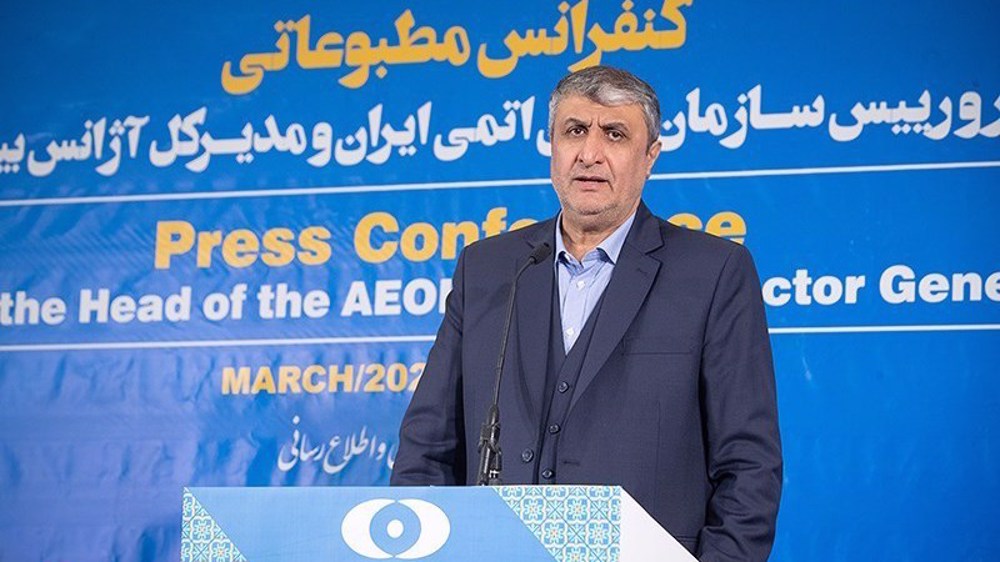
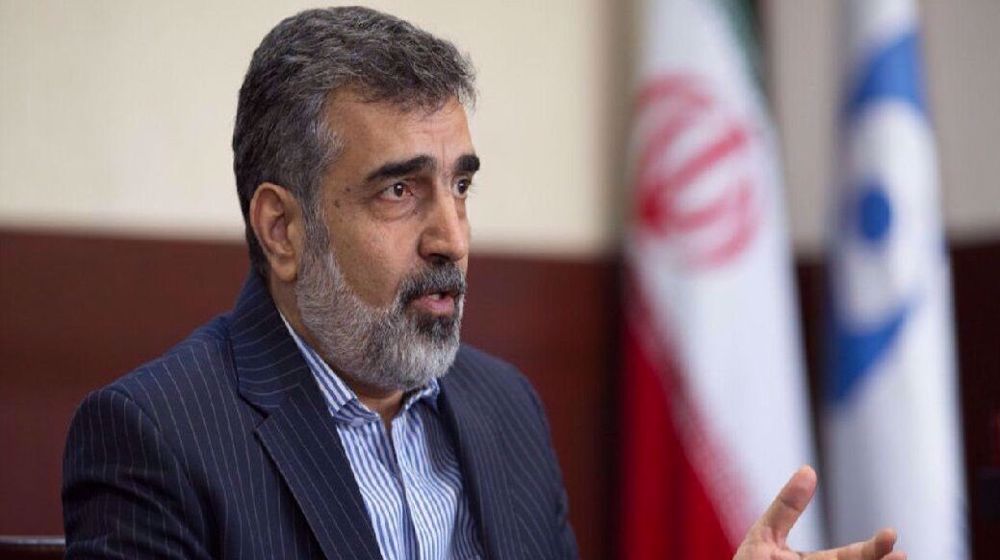
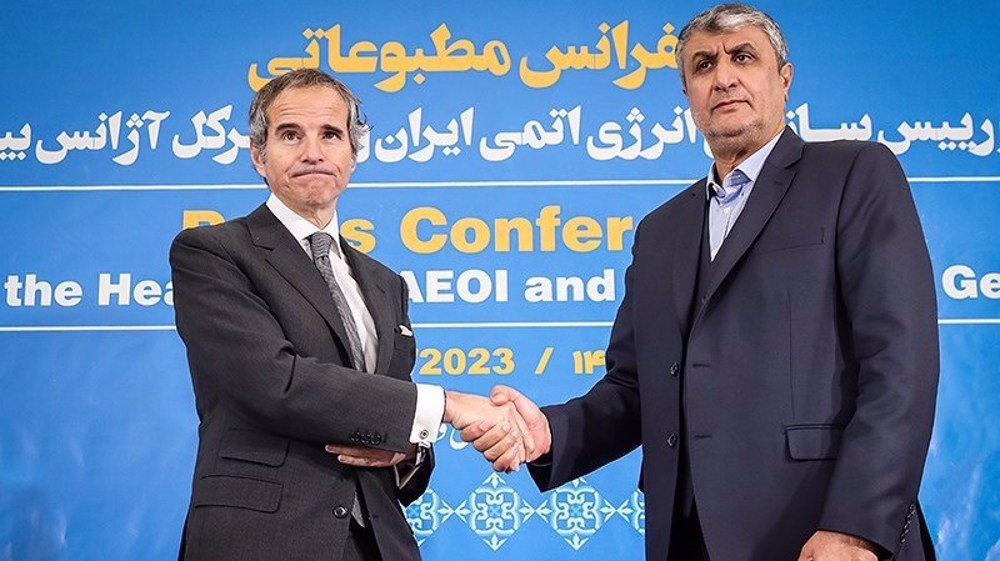
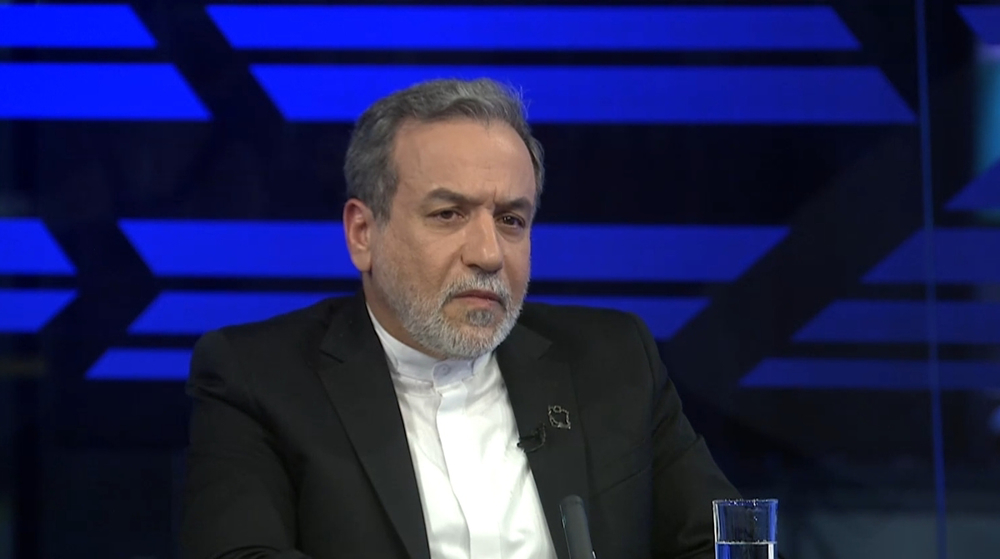

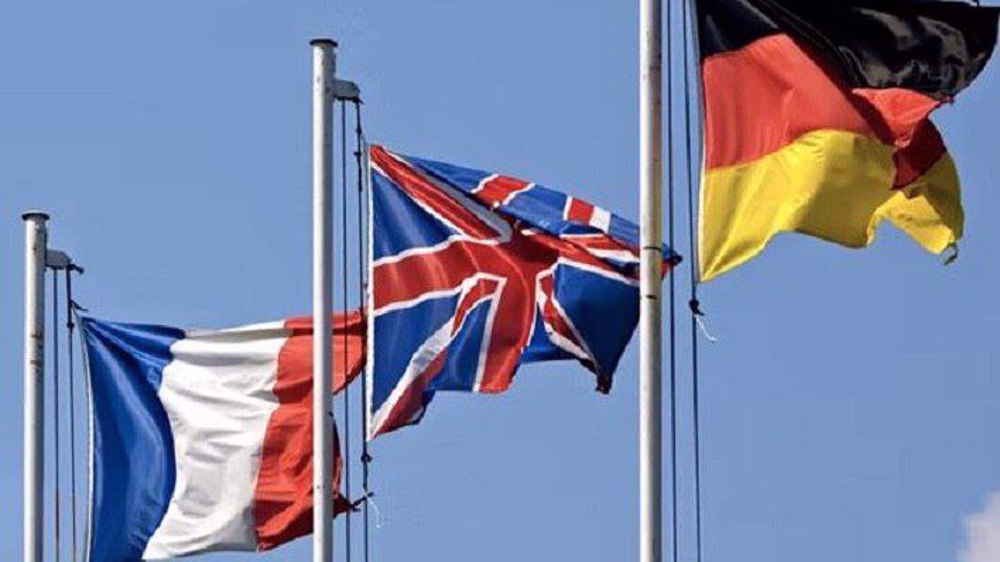




 This makes it easy to access the Press TV website
This makes it easy to access the Press TV website